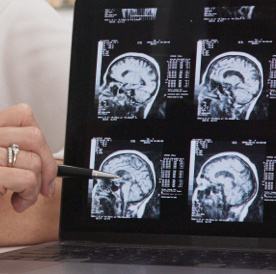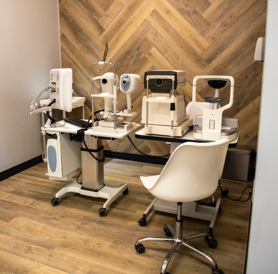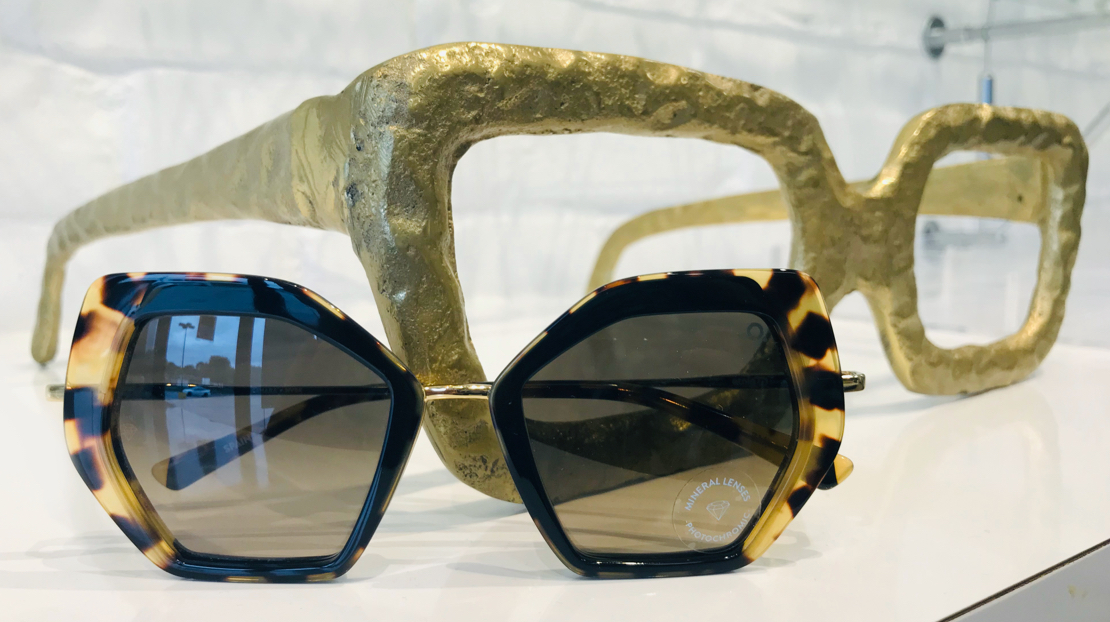Advanced Eye Care From a Devoted Optometrist Team
At Bayside Eye Care in Barrie, we believe that essential eye care goes above and beyond routine eye exams. But primary eye care remains a fundamental part of preventive healthcare by protecting your eyes from vision-threatening eye conditions. Eye exams are also vital tools in detecting other health concerns seemingly unrelated to your eyes, like high blood pressure or diabetes.
Our ultimate goal is to prevent ocular diseases and eye conditions that cause vision loss and blindness. 75% of vision loss is preventable if caught early, making eye exams crucial for protecting your valuable eyesight.
Our team of eye care professionals is always happy to accept new patients. If you need an eye exam, please call us today and book your appointment.
How Often Should You Have an Eye Exam?
Every patient is unique and has their own vision concerns, which determines how often they need an eye exam. Although some patients, such as those with diabetes, are at a higher risk than others for developing eye diseases, everyone should undergo regular eye exams regardless of their current prescription, age, or overall health.
The Canadian Association of Optometrists (CAO) recommends:
- Adults 20 to 39 should have an eye exam every 2 to 3 years
- Adults 40 to 64 years should have an eye exam every 2 years
- Adults 65 years or older should have an eye exam every year
When you first become a patient of ours, we will likely want to see you every year or so to get to know you and your eyes. The better we know you and your unique circumstances, the better care we can provide.
Common Eye Diseases
An estimated 5.59 million Canadians have an eye disease that can cause sight loss. The 4 leading causes of blindness are glaucoma, cataracts, diabetic retinopathy, and age-related macular degeneration.
At Bayside Eye Care, we use advanced imaging technology aiming to detect these diseases in their earliest stages to prevent vision loss.
Glaucoma
Glaucoma is a group of eye diseases that progressively damage the optic nerve. There are many types of glaucoma, and they are usually associated with elevated internal eye pressure, but not always.
Most types of glaucoma develop with no symptoms, and those who have it may not realize it until they experience some vision loss. This makes eye exams essential for preventing this disease from damaging your vision.
Cataracts
Cataracts occur when the eye’s natural lens begins to cloud. They are generally age-related, developing slowly over time, but they can occur for many reasons.
You may not notice mild cataracts, but over time they will start causing vision changes, like blurred vision, faded colours, and poor night vision.
Mild cataracts can be managed with eyeglasses or contact lenses. Once cataracts start impacting your ability to perform daily tasks, you may require cataract surgery.
Diabetic Retinopathy
Diabetic retinopathy is an eye disease associated with diabetes. It occurs when high blood sugar levels damage the delicate blood vessels that feed the retina.
Like glaucoma, diabetic retinopathy often progresses with no early symptoms, but it can lead to vision loss and blindness if left untreated.
Everyone with diabetes is at risk of developing this eye disease. But the longer you have diabetes, and the less controlled your blood sugar levels are, the higher your chances are of developing diabetic retinopathy.
Age-Related Macular Degeneration
Age brings many changes to your eyes and your vision. One of these changes includes the deterioration of the area in the retina responsible for our sharp, central vision (the macula), called age-related macular degeneration (AMD).
As the name suggests, AMD is most common in older patients, generally affecting those over 50. It tends to progress slowly and with few noticeable early symptoms. However, if left untreated, AMD will cause central vision loss, potentially impacting your ability to read, write, drive, or recognize faces.

Comprehensive Eye Care in Barrie
Our primary goals are to acknowledge all your concerns and ensure you feel heard and understood. You are the reason we do what we do, and nothing is more important to us than ocular health. For a comprehensive eye exam that uses the latest in advanced diagnostic technology, please contact us for your next eye exam appointment in Barrie.
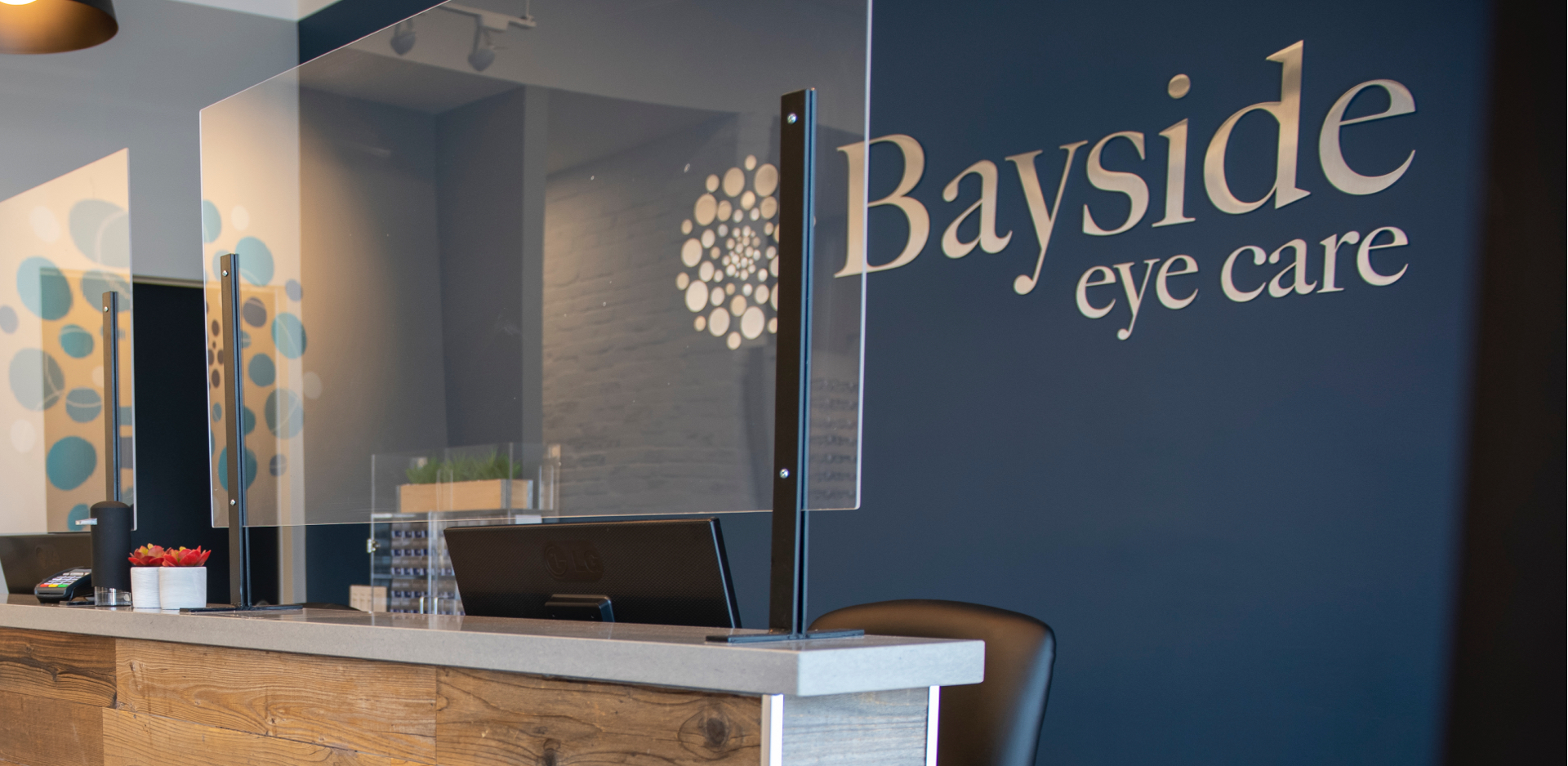
Our Location
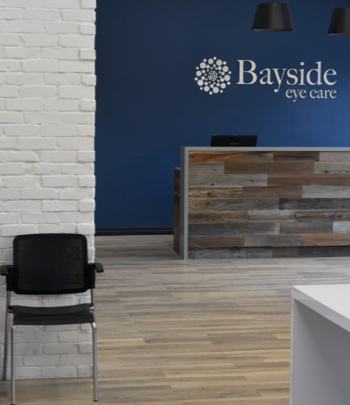
Visit Us
Just off Leacock Drive, find us in the strip mall next to O’Sullivan Animal Hospital.
- Phone: 705-728-3396
- 420 Leacock Drive, Unit I
- Barrie, ON L4N 5G5
Hours of Operation
- Monday: 9:00 AM – 5:00 PM
- Tuesday: 9:00 AM – 5:00 PM
- Wednesday: 9:00 AM – 5:00 PM
- Thursday: 9:00 AM – 5:00 PM
- Friday: 9:00 AM – 3:00 PM
- Saturday: Closed
- Sunday: Closed
Extended hours appointments available by appointment only.



See Our Google Reviews

OUR BLOG
Vision Therapy for Strabismus
Vision TherapyVision therapy is an effective, noninvasive treatment option that helps retrain the eyes and brain to work together more efficiently. […]
How Long Does Eye Strain Last?
Digital Eye StrainDry EyeEye HealthDigital eye strain tends to last for a few hours. In the meantime, it helps to take a break and rest your eyes—try avoiding screens where possible and regularly focusing your eyes at different distances. This gives them a much-needed rest.
[…]
Glaucoma vs Cataracts: What’s the Difference?
Eye ConditionsEye Health Glaucoma and cataracts are two of the most frequent eye issues, but they differ significantly in their causes, symptoms, and treatments.
[…]
Vision Therapy for Strabismus
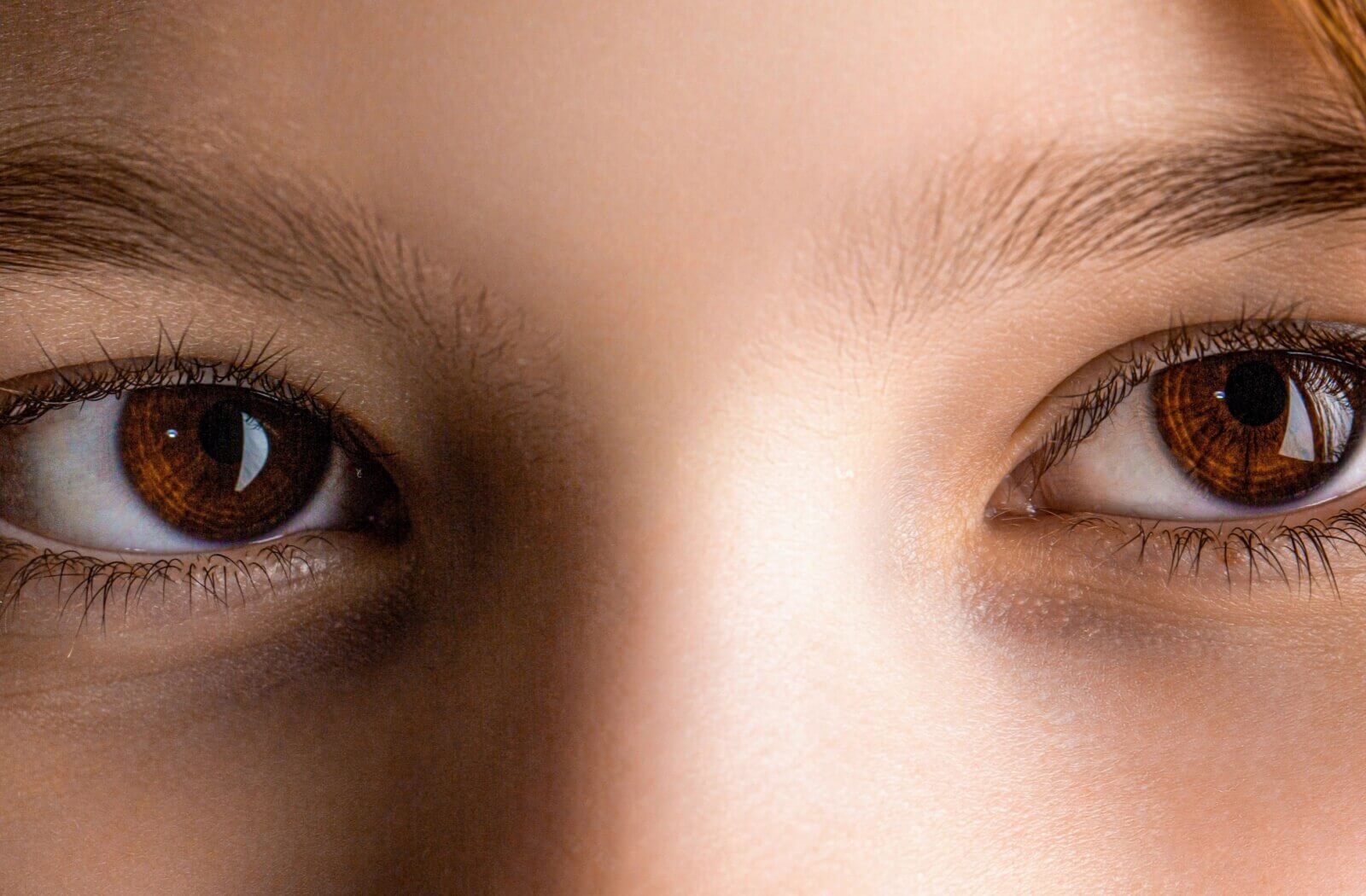
Vision therapy is an effective, noninvasive treatment option that helps retrain the eyes and brain to work together more efficiently. […]
How Long Does Eye Strain Last?

Digital eye strain tends to last for a few hours. In the meantime, it helps to take a break and rest your eyes—try avoiding screens where possible and regularly focusing your eyes at different distances. This gives them a much-needed rest.
[…]
Glaucoma vs Cataracts: What’s the Difference?
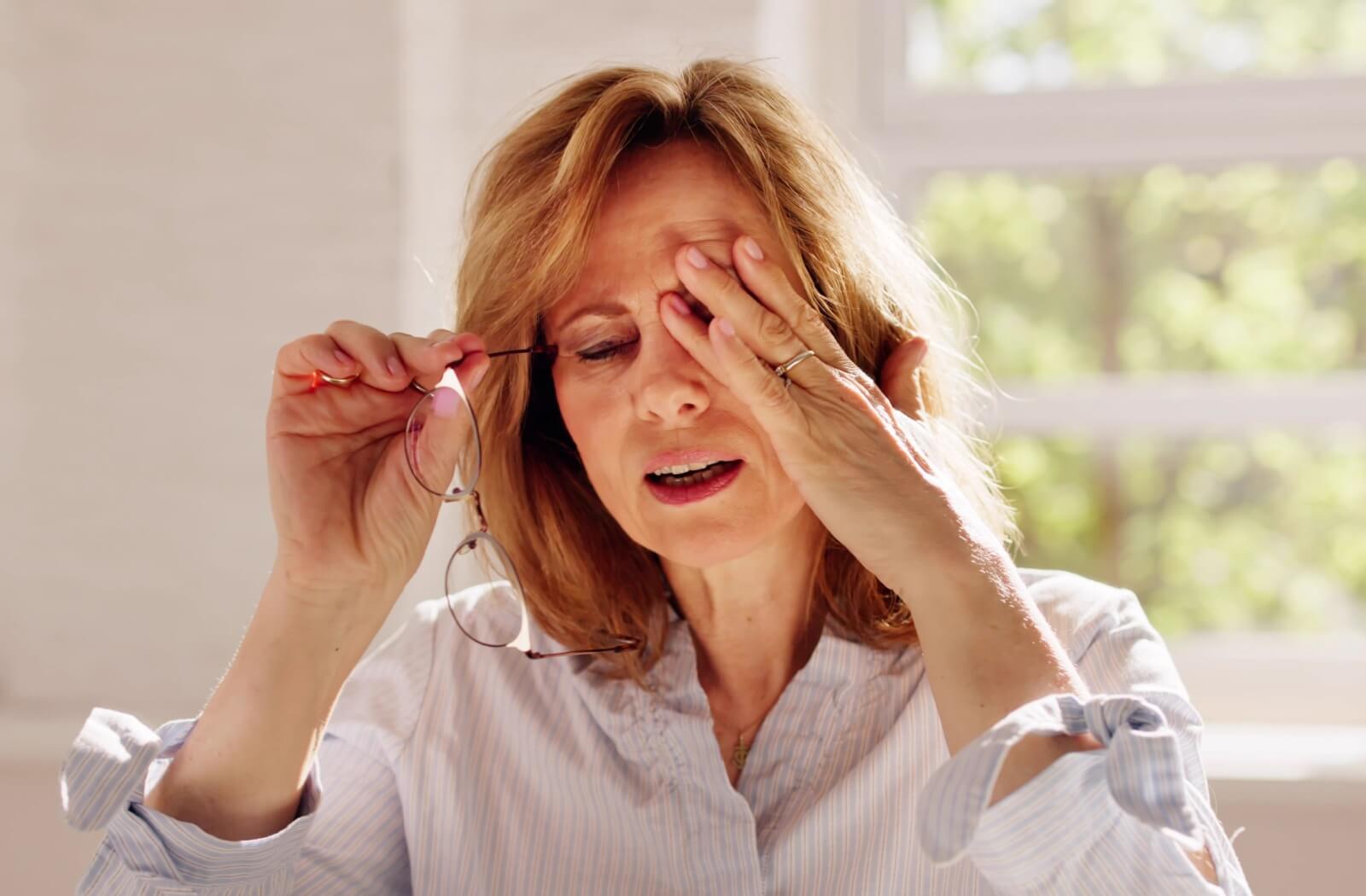
Glaucoma and cataracts are two of the most frequent eye issues, but they differ significantly in their causes, symptoms, and treatments.
[…]



